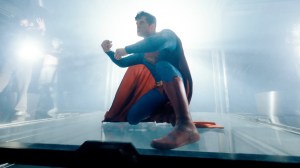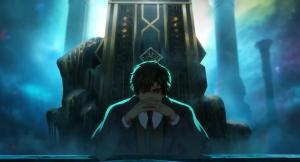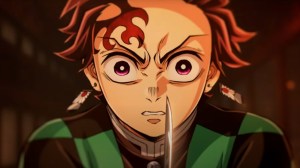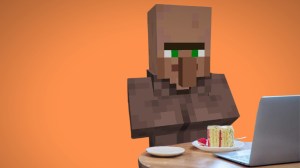Justice League writer Scott Snyder picks up another thread from his best-selling Dark Nights: Metal series beginning this week with The Batman Who Laughs, a miniseries dedicated to the breakout villain from that event.
Videos by ComicBook.com
The Batman Who Laughs, an alterate-reality version of Bruce Wayne who killed, and then became, The Joker, plots a Macchiavellian scheme in the series, which Snyder is writing and which is being illustrated by his frequent collaborator Jock. Thematically, it picks up on some of the big ideas about Batman as Bruce Wayne’s coping mechanism to deal with the darkest nightmares in the world in a very literal way, since the dark multiverse, which birthed the Batman Who Laughs, is part of the Dreaming and created by our nightmares.
Snyder and Jock joined ComicBook.com for a discussion of the series, what fans can expect, and how The Batman Who Laughs is, in some ways, the culmination of everything Snyder has been doing with Batman for years.
You can check back in a few days for more from this conversation — it got pretty spoilery and about a third of it had to be redacted.
Jock, you are known for your Judge Dredd work, and obviously there are comparisons between The Batman Who Laughs and Judge Death. Are there things that you can kind of draw from the 2000 AD sensibility to help make this character even creepier?
Jock: What I don’t want to do is make them too similar, but I think you’re right that The Batman Who Laughs and Judge Death have have a similar aesthetic. I grew up with Brian Bolland drawing Judge Death and, yeah, they’re definitely the kind of touch-touch going to a tone, maybe, but beyond that I mean really one of my goals is to get away from that, you know, as much as you can, because obviously The Batman Who Laughs is a lone character and something very different.
But Dredd has a very strong influence on me, so obviously I’m aware of that comparison. He is an awesome, strong character in his own right, and my job is to try and bring hopefully something new to him which expands on him and makes him more exciting for the readers.
How important do you think humor is in the darker stories that you tell?
Scott Snyder: I always have tried to balance the real passives and the sort-of darker energy of Batman with humor. I love that side of him, that he’s also really funny, deliberately, and funny because he’s also so clueless about how arrogant and awesome everyone thinks he is, in that regard, so he’s a really rich character for that and you can play all angles.
I was just writing him in Justice League and he’s just funny where he’s playing the straight man and that stuff. It works with him, and you can give him really deep, emotional, dark moments as well, and they fit. I think in a book like this, especially where the focus is his greatest fears and kind of a real dialectic he’s having with the Batman Who Laughs who’s saying “you think this makes you happy and that this is what’s supposed to be the consolation for not having love, not having family….I’ve seen every version of you across the multiverse of us,” — cause he’s Bruce too — “Let me show you what really makes you happy, what you don’t wanna look at”.
You’ve written Batman for a very long time and one of the big themes that you keep coming back to, we’ve talked about it for probably five years now, is this idea of Batman being away from ordinary people but confronts fear. So the idea of doing a whole story about Batman’s greatest fear, is this kind of like where do you go next? Because this feels like the ultimate statement of what you’ve been talking about for years.
Snyder: Towards the end, this has some thoughts that I’ve had about Batman and some, really a thesis statement that I’ve been waiting to make. I almost did it in Metal, and I just felt that book was too communal with the Justice League and everything to kind of put it in.
Between this book and Last Knight, I’m not looking to “retire” from Batman forever and never write Batman again — I’m writing him in Justice League! But I’ve been at DC for ten years next year and Batman was my first gig, and I’ve been doing it consistently since. As long as I have things that I’m extremely excited to say and that are personal to me I want to say them about the character but I’m at a moment right now where I’m trying to say the things that I’ve been wanting to, or that I’ve been saving, or that I’ve been thinking about and haven’t had, sort of a venue, because Batman as a series had certain pressures on it and within continuity or had limitations in terms of what you could create at times. The creation of Batman Who Laughs to go to places I couldn’t with the Joker.
It really is freeing, so I do feel like I’m getting to territories that feels unchartered and brand new for me. It embraces a kind of nightmare-ish, cosmic element that is expansive where as where I began on “Black Mirror” with Jock I was just getting my feet under me and I had a story that was really personal.
I wanted to tell but it was intensely grounded, like intensely Gotham — gritty street corners and shadows, and now I’ve been all over the DCU and done things that have been taking me to the Source Wall and beyond, and coming back I almost feel like a older, wiser writer and in some way this is a spiritual successor to that book. It has the same characters, it has a lot of connections to it, but it’s a more terrifyingly expansive investigation of some of the same ideas.









